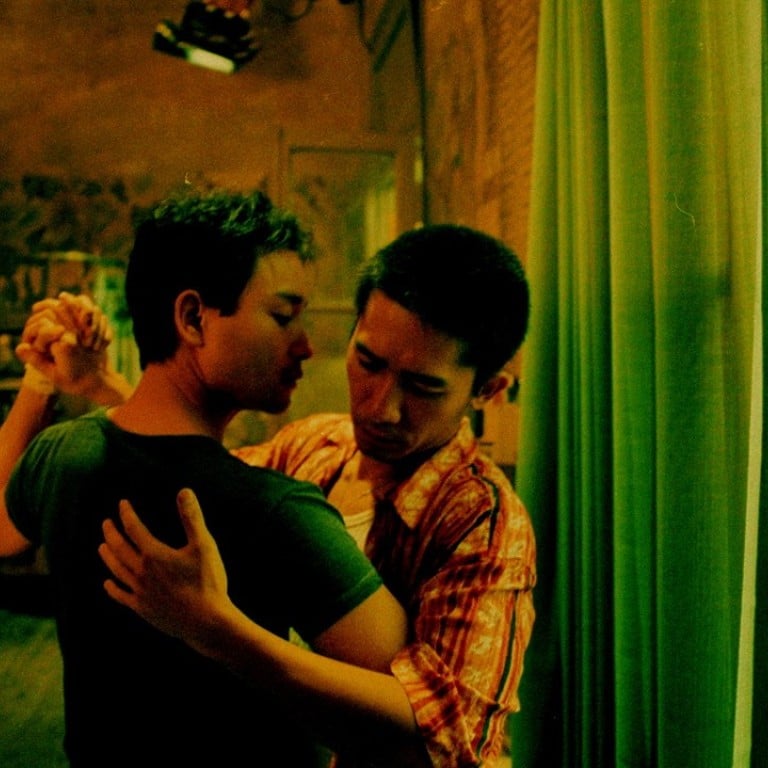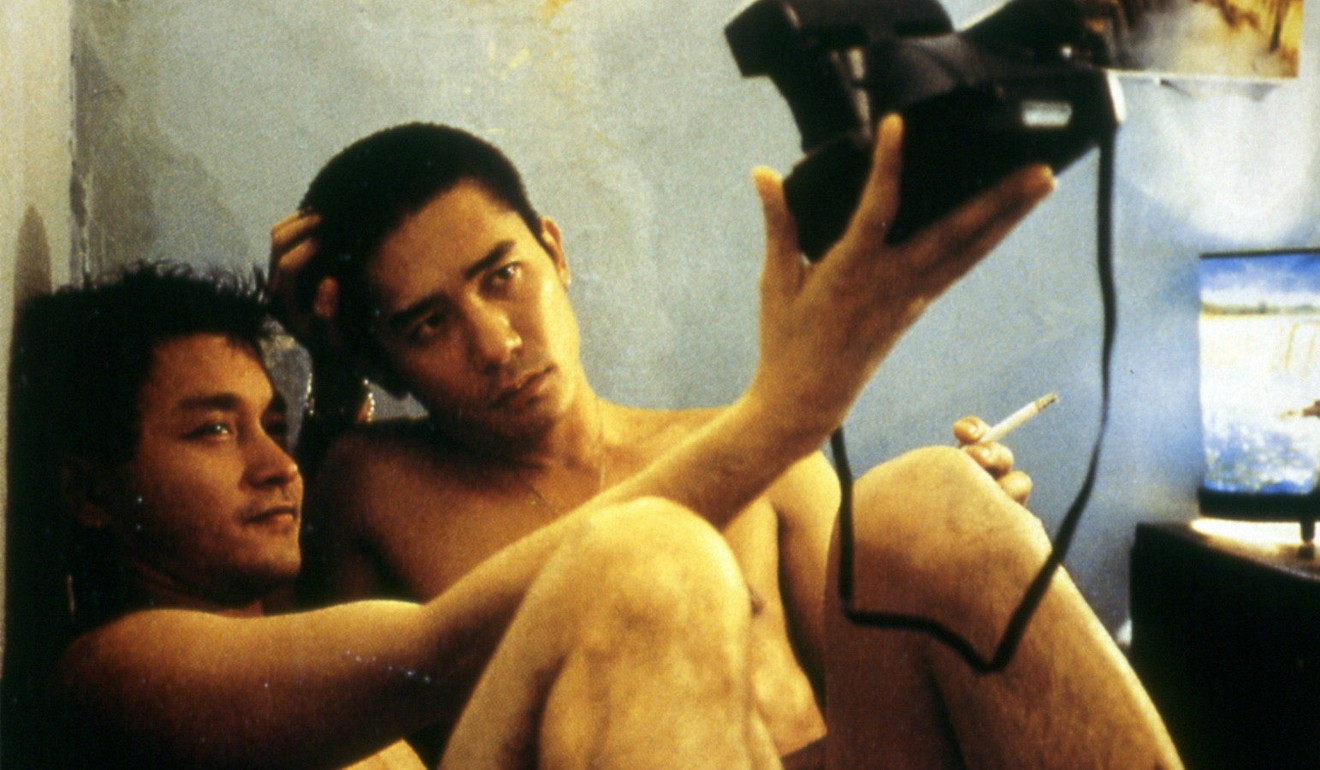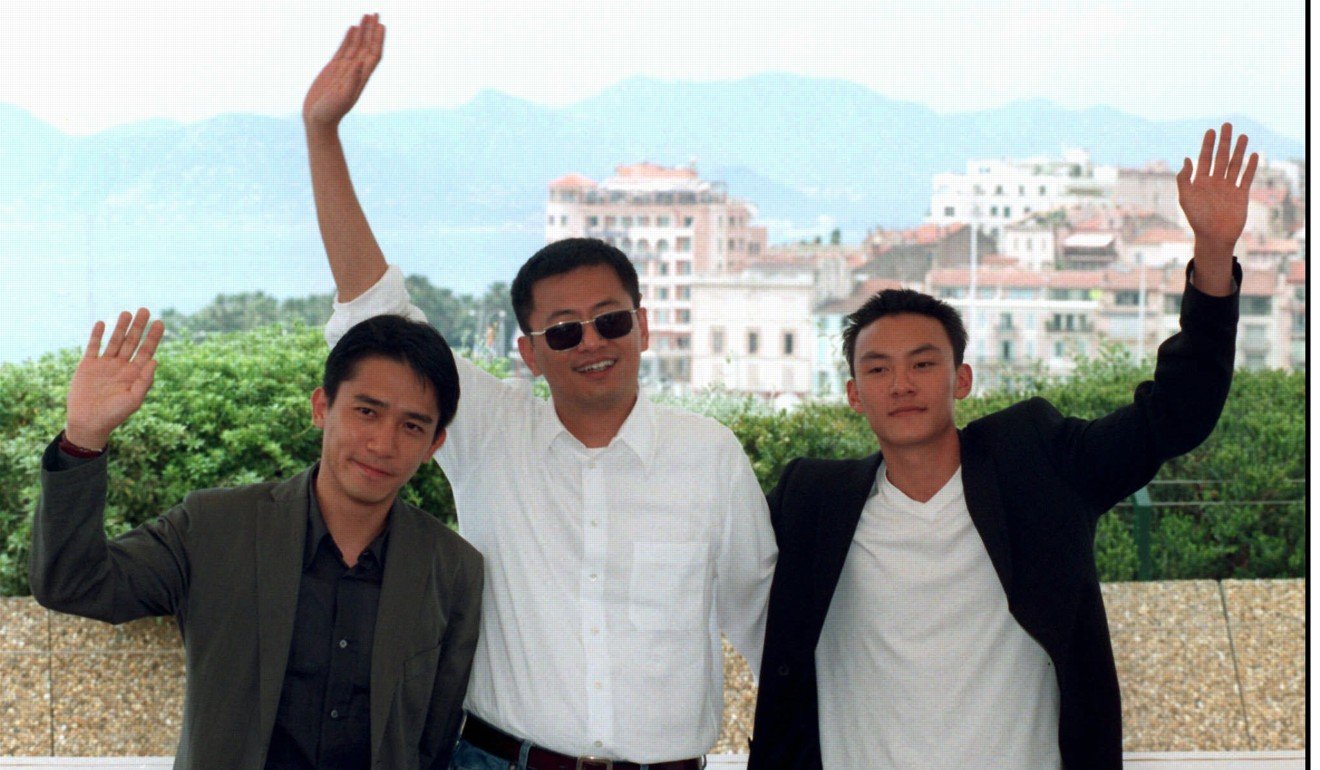
In pictures: Happy Together – the Tony Leung-Leslie Cheung romance that put Wong Kar-wai on the world map – turns 20
Hong Kong filmmaker’s 1997 win at Cannes for gay romance was followed by a string of awards, including a best actor prize for Tony Leung and, three years later, another at Cannes for In the Mood for Love
By the time Wong Kar-wai’s soulful gay romance Happy Together premiered in competition at the Cannes Film Festival on May 17, 1997, the Shanghai-born, Hong Kong-based writer-director was already a prominent figure in Chinese-language art-house cinema on the back of instant classics such as Days of Being Wild (1990), Chungking Express and Ashes of Time (both 1994).
But the best director prize that Wong won at 1997 Cannes for Happy Together, which marked the filmmaker’s first major honour at a top international film festival, was still a critical step in his path to recognition as one of world cinema’s greatest living auteurs.
Wong returned to the world’s most famous film festival in 2000 with his next film, the sublime romantic drama In the Mood for Love, which won the best actor prize for Tony Leung Chiu-wai. That film would subsequently be ranked in a 2016 poll by the BBC as the second best film of the 21st century.

The loss still hurts – ten years on, Leslie Cheung is remembered
Released in Hong Kong cinemas on May 30, 1997, just before the handover, Happy Together would add to its Cannes acclaim by going on to win the best cinematography prize for Christopher Doyle at the 1997 Golden Horse Film Festival, as well as the best actor honour for Leung at the 1998 Hong Kong Film Awards.

Taiwanese actor Chang Chen – then a relative newcomer after only featuring in two Edward Yang films, A Brighter Summer Day (1991) and Mahjong (1996) – plays Lai’s co-worker at a diner in the second half of the film, supplying the quiet company our lovelorn protagonist desperately needs.
As is often the case of a Wong production, Happy Together is bursting with curious trivia: from the innocuous fact that the lead characters were named after the film’s two assistant cinematographers, to one of the most notorious signs of Wong’s fickle nature as a storyteller – Canto-pop singer Shirley Kwan Suk-yee had a key part in the film, until she was completely cut from Wong’s final edit.
Footage from the four-month production in Argentina was later released in an hour-long documentary, Buenos Aires Zero Degree, which revealed some of the beautiful moments of shooting around the enthralling cocktail of tango bars, salsa music and, of course, the Iguazu Falls.
Happy Together was to be the last film by Wong that Cheung starred in – they collaborated on Days of Being Wild and Ashes of Time previously – before the screen icon died in 2003. Leung, Chang and Wong would all reunite for the 2013 martial arts epic The Grandmaster – although it’s Chang’s turn to suffer a “Shirley Kwan” this time as his role was unexpectedly reduced to a bare minimum.
Chang should perhaps have heeded the warning in Happy Together: it’s not always wise to “start over” in Wong’s world of perpetual regrets.
Want more articles like this? Follow SCMP Film on Facebook

